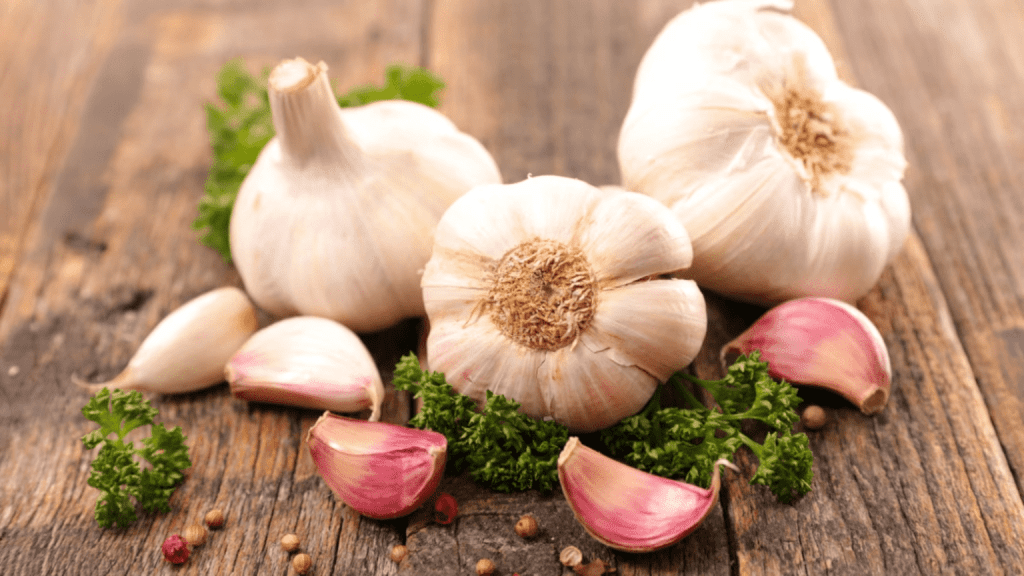My husband eats a clove of garlic every morning for its immune-boosting effects. I worry that’s excessive and could lead to issues. Thoughts?
When it comes to health practices, everyone has their unique routines—some tried-and-true, others a bit more unconventional. One such practice that has gained attention is eating a clove of garlic every morning. This habit is touted for its immune-boosting properties, but is it really as beneficial as it’s made out to be, or could it lead to potential health issues? If you’re wondering whether this daily garlic habit is truly a healthy choice or something to be concerned about, you’re in the right place.

Garlic’s Reputation as an Immune Booster
Garlic has long been celebrated for its medicinal properties, dating back centuries. It’s packed with compounds like allicin, which is believed to be the powerhouse behind its immune-boosting abilities. Studies have shown that garlic can potentially help the body fend off colds, flu, and other infections. Here’s what garlic is known for:
- Antimicrobial Properties: Garlic is said to have natural antibacterial, antiviral, and antifungal properties, which makes it a go-to remedy for fighting off illnesses.
- Heart Health: Garlic is often linked to heart health. It may help lower cholesterol levels and blood pressure, making it a popular choice for people looking to maintain cardiovascular well-being.
- Cancer Prevention: Some studies suggest that the bioactive compounds in garlic might help reduce the risk of certain cancers, adding to its reputation as a “superfood.”
- Antioxidant Boost: Garlic contains antioxidants that may help combat oxidative stress in the body, supporting overall health and longevity.
With all these impressive health benefits, it’s easy to see why someone might incorporate garlic into their daily routine. However, the big question remains: How much garlic is too much?
Could Eating Garlic Every Day Be Excessive?
While there’s no doubt that garlic offers numerous health perks, consuming an entire clove every morning might not be the best approach for everyone. Let’s explore why eating large amounts of garlic, especially raw and on an empty stomach, could pose some risks:
- Digestive Issues: Raw garlic can be quite harsh on the stomach. It’s not uncommon for people to experience discomfort like heartburn, gas, or nausea after consuming large amounts. If your husband is eating a clove of garlic daily and experiencing any of these symptoms, it might be worth reassessing this habit.
- Potential Allergic Reactions: Some individuals are allergic to garlic, and they might not even know it until they consume it in significant quantities. Symptoms can range from mild stomach upset to more severe reactions.
- Blood Thinning Effects: Garlic has natural blood-thinning properties, which could be dangerous for individuals on blood-thinning medications or those with bleeding disorders. While a little garlic in the diet is generally safe, consuming large quantities could interfere with certain medications or conditions.
- Breath and Body Odor: Garlic’s pungent odor doesn’t just affect breath—it can also seep through pores, causing body odor. While this isn’t a health risk, it’s certainly something to keep in mind.
Moderation Is Key: How Much Garlic Is Safe?
As with most things, balance is crucial when it comes to garlic consumption. The key is to enjoy the benefits without overdoing it. Experts often recommend about 1–2 cloves of garlic per day for general health purposes. However, it’s essential to pay attention to how your body reacts. Everyone’s tolerance to garlic is different, so it’s important to find the right amount that works for you.

If your husband enjoys the health benefits of garlic but is concerned about consuming it raw every morning, there are alternatives that might be easier on the stomach. For instance, cooking garlic slightly can reduce its harshness while still preserving many of its beneficial properties. Additionally, garlic supplements are available for those who want the health perks without the strong taste or potential digestive issues.
How to Reap the Benefits of Garlic Safely
If you’re looking to keep garlic in your diet but want to avoid potential drawbacks, here are some tips to consider:
- Cooked Garlic: While raw garlic has the highest concentration of allicin, cooked garlic still offers plenty of health benefits without being as hard on your digestive system. Consider incorporating it into meals where it’s gently cooked.
- Garlic Supplements: These can be a convenient alternative to consuming raw garlic, especially for those concerned about digestion or odor. However, it’s important to consult with a healthcare provider before starting any supplement regimen.

- Mix It Up: Rather than eating an entire clove of garlic in one go, try incorporating smaller amounts throughout the day in meals, salads, or smoothies. This can help reduce any adverse digestive effects while still allowing you to enjoy its immune-boosting properties.
Communication Is Key: Navigating Health Disagreements in Relationships
Dietary habits, especially unconventional ones, can sometimes create friction in relationships. If you’re concerned about your husband’s garlic habit, it’s important to have an open, non-judgmental conversation about it. Focus on your concern for his well-being rather than criticizing his choices. Discussing the potential digestive issues or interactions with medications might help both of you come to a decision that works for both your health goals and peace of mind.

Remember, no one-size-fits-all solution exists for dietary habits. Just as each person’s immune system is unique, so too are their dietary needs. Finding a balance that respects both of your health perspectives can prevent small disagreements from escalating.
Conclusion: Garlic’s Benefits—With a Dose of Caution
Garlic is undeniably a powerful superfood, offering a host of benefits from immune support to heart health. But like any dietary practice, moderation is key. While eating a clove of garlic every morning might boost the immune system, it can also lead to digestive discomfort and other risks, particularly for those with sensitive stomachs or on certain medications.
If your husband is experiencing no negative side effects, then it may simply be a matter of preference and tolerance. However, if you’re concerned about the potential downsides, consider discussing ways to balance the benefits of garlic with a more manageable consumption method. Ultimately, understanding and respecting each other’s health choices will lead to a healthier, more harmonious relationship.
